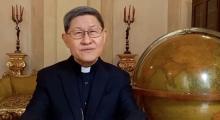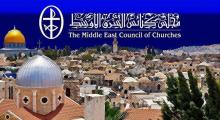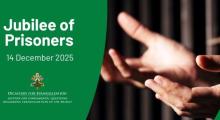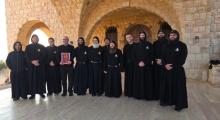Issued by the Catholic Center for Studies and Media - Jordan. Editor-in-chief Fr. Rif'at Bader - موقع أبونا abouna.org
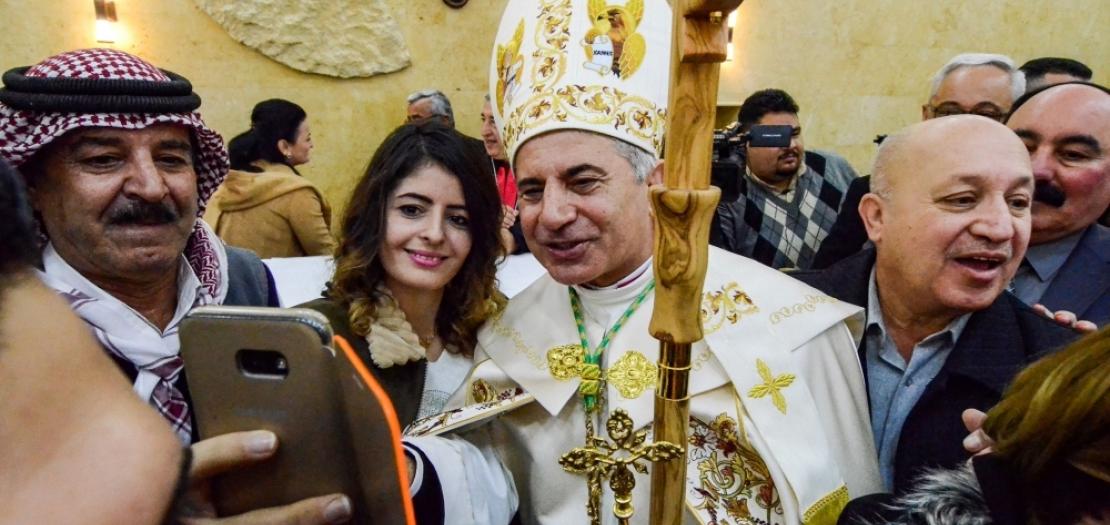
Dominican Monsignor Michaeel Najeeb Moussa, Archbishop of Mosul since January 2019, describes the difficult journey of Mosul to AsiaNews. Eight years ago this week, the metropolis in northern Iraq witnessed the great flight of Christians due to the advance of the ISIS militias. The escalation of death and destruction lasted over three years and ended with the liberation following the offensive launched by the Iraqi army, supported by US troops. The road to recovery has begun, but it is a long and arduous one, full of challenges also and above all for the Christian community, an original component of the region but now reduced to a tiny minority, as the prelate recounts.
"Eight years after the invasion of ISIS in Mosul, Sinjar and the Nineveh Plain," Msgr. Moussa emphasizes, "Iraq for us today remains a real nightmare. The extremists have been exterminated, their flags burnt, but the ghost of their racist ideology remains anchored in the minds of a part of society, especially among the less cultured'.
The archbishop, who has been permanently resident in the city for some time, says "the return of Christians to Mosul, is still minimal and timid." Because corruption is well established in the government, which ends up not supporting its citizens.
There is a lack of job opportunities, the infrastructure is degraded, 60 per cent of the houses are still damaged, 28 churches have been destroyed, only two of which are operational thanks to the efforts of the NGOs that are also involved in the renovation of the houses that are now habitable, able to host the 56 Christian families that have decided to return, showing great courage, under the guidance of one priest and one bishop. Convents and monasteries, three of which date back to the 5th and 6th centuries, are still dilapidated and in ruins'.
Archbishop Moussa knows the reality of Mosul well, having been born there in 1955 while his priestly ordination took place in 1987. He holds a master's degree in Catholic Theology and, since 1990, has served as director of the city's Digital Centre for Oriental Manuscripts, overseeing the preservation and digitization of over 800 ancient manuscripts in Aramaic, Arabic and other languages, thousands of books and secular letters.
Faced with the advance of the ISIS militias, the prelate was forced to flee first to the Nineveh plain, then to Iraqi Kurdistan like tens of thousands of Christians. And it was his tenacity in saving this cultural heritage from the extremist madness that earned him the nomination for the 2020 Sakharov Prize. After the inauguration of the archbishopric, the goal is to rebuild the social fabric, even if the path remains long and complicated.
Pope Francis' visit in March 2021 marked a milestone for the city, because it was able to show shoots of rebirth, unthinkable until a few years ago. The elderly pontiff bowing and asking God's forgiveness for the violence unleashed in the square of the four churches in Mosul; the choral participation of Muslims, Christians, Yazidis and Sabeans, dressed in festive attire, they, the survivors of the uprooting; the shattered walls of the churches under reconstruction, whose monument to the martyrs and those who died in the murderous rampage is blessed, were signs and symbolic gestures charged with meaning.
The bishop confirms, these seeds of hope are reflected in certain initiatives that unite all the souls of the city. "A different, and positive, expectation is being established between the different communities because the ferocity of ISIS has triggered a reaction from citizens against violence and sectarianism. Everyone is working side by side to rebuild or gradually restore homes, as one example among many of solidarity, thanks also to associations and non-governmental organizations present in the area".
The archbishop of Mosul concludes with a reflection on his own mission "as an ISIS survivor" as he likes to call himself, and his future prospects. "I was born in Mosul, so I cannot only be at the service of Christians. The bishop is a man of peace and reconciliation, a builder of bridges between people and different communities. Among our friends, the Muslim faithful are more numerous than the Christians themselves, they help us in the various projects by renovating churches, participating in activities and celebrations, with open hearts and a desire to share. Despite the difficulties, Christians remain a strong and united reality, they want to remain in this martyred country, witnesses of Christ on Earth."
"Through education,' Msgr. Moussa concludes, 'we can fight ignorance and through goodwill and tenacity we can stop the hatred and acrimony of fanatics'.



